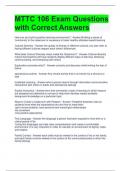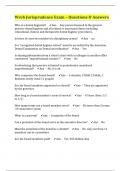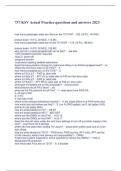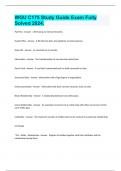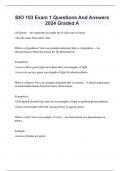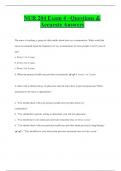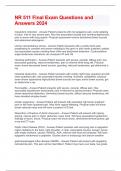Exam (elaborations)
MTTC 106 Exam Questions with Correct Answers
- Course
- Institution
MTTC 106 Exam Questions with Correct Answers How can you build a positive learning environment? - Answer-Building a sense of 'community' in the classroom is necessary to foster healthy attitudes toward learning Cultural Diversity - Answer-the quality of diverse or different cultures; can also...
[Show more]
